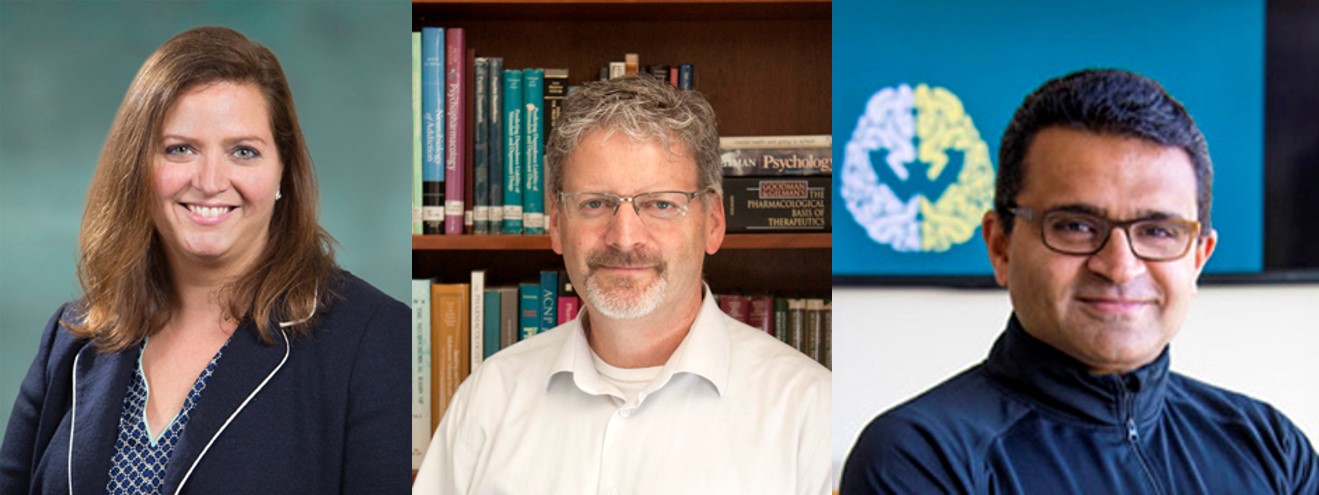
Wayne State University faculty in the Department of Psychiatry and Behavioral Neurosciences have received a two-year, $145,000 award from the Ethel & James Flinn Foundation to develop and expand a novel school-based behavioral health clinic. The program, called Engagement, Assessment, Remediation and Learning in Youth, or EARLY, will be led by Rebecca Klisz-Hulbert, M.D.; Vaibhav Diwadkar, Ph.D.; and Jeffrey Stanley, Ph.D.
“Providing behavioral health services in an efficient and timely manner to at-risk youth is critical for preventing adverse major psychiatric syndromes in later life,” said Dr. Klisz-Hulbert, assistant professor of Psychiatry and Behavioral Neurosciences. “Public schools — and, indeed, all schools — face significant challenges in providing expert and on-site behavioral health services. These challenges have grown exponentially in the last two years. EARLY is designed to address this need.”
EARLY’s school-based clinic will place child and adolescent psychiatrists, social workers and clinical psychologists in schools. The consistent on-site presence of clinicians specifically trained in child and adolescent psychiatry and psychology will facilitate the early identification of behavioral symptoms, in-school preemptive therapy, medication management and crisis screenings.
“Many youth at risk for psychiatric disorders present with general behavioral problems that are challenging and require the expertise of behavioral health care providers for identification and treatment,” said Dr. Stanley, professor of Psychiatry and Behavioral Neurosciences, and director of the Translational Neuroscience Program. “Teachers, social workers and therapists are frequently ill equipped to identify them or understand their long-term significance. This can place an undue burden on these school professionals and will have adverse long-term health consequences for youth.”
Dr. Klisz-Hulbert said that multiple life stressors, exposure to traumatic events, hormonal changes and school challenges put extreme pressure on school-age youth.
“This perfect storm of stressors exerts unpredictable effects that, unless identified and treated, culminate in psychiatric illnesses related to substance use, anxiety, depression and thought disorder,” she said. “The first global pandemic in more than 100 years has exacerbated this problem by creating prolonged periods of remote learning, a loss of exposure to in-school peers, and stress and anxieties related to the long-term effects of the disease. The costs of undiagnosed behavioral health issues in youth cannot be overestimated.”
In addition to these stressors, youth residing within low-income households face additional barriers to appropriate treatment. An explicit aim of EARLY is to provide equitable access to behavioral health care, eliminate the disproportionate burden on the disadvantaged — including lack of transportation and other resources — and aid parents and guardians seeking behavioral health services for their children.
WSU staff will collaborate with and train school staff to ensure the program’s long-term sustainability. In its initial phase, the program will be placed in Livonia Public Schools before expanding to other districts in the metropolitan Detroit area.
“Livonia Public Schools are an excellent venue for unveiling this pilot program,” Dr. Klisz-Hulbert said. “The district has a very diverse student population and more than a third of their students identify as low income. Establishing EARLY in Livonia Public Schools will provide accessible behavioral health services, thereby helping to eliminate behavioral health disparities created by low socioeconomic status.”
Many of EARLY’s community outreach goals are interrelated with the NIH-funded research goals in the department. The EARLY program will help researchers as they seek to understand the bio-psycho-social bases of many child and adolescent onset disorders related to psychosis and obsessive-compulsive disorder.
Other significant contributors to EARLY include Eva Waineo, M.D., assistant professor of Psychiatry and Behavioral Neurosciences, and Patricia Thomas, M.S.W., a long-time research associate in the department.
“EARLY will be game-changing to school districts across Michigan and can become a national model,” said David Rosenberg, M.D., chair of the Department of Psychiatry and Behavioral Neurosciences and the Miriam L. Hamburger Endowed Chair of Child Psychiatry. “With the help of the Ethel & James Flinn Foundation, this critical pilot initiative can be further developed. The eventual expansion of EARLY across our state and beyond will make a critical difference in the mental health of our children. I cannot emphasize enough what a crucial investment this is.”